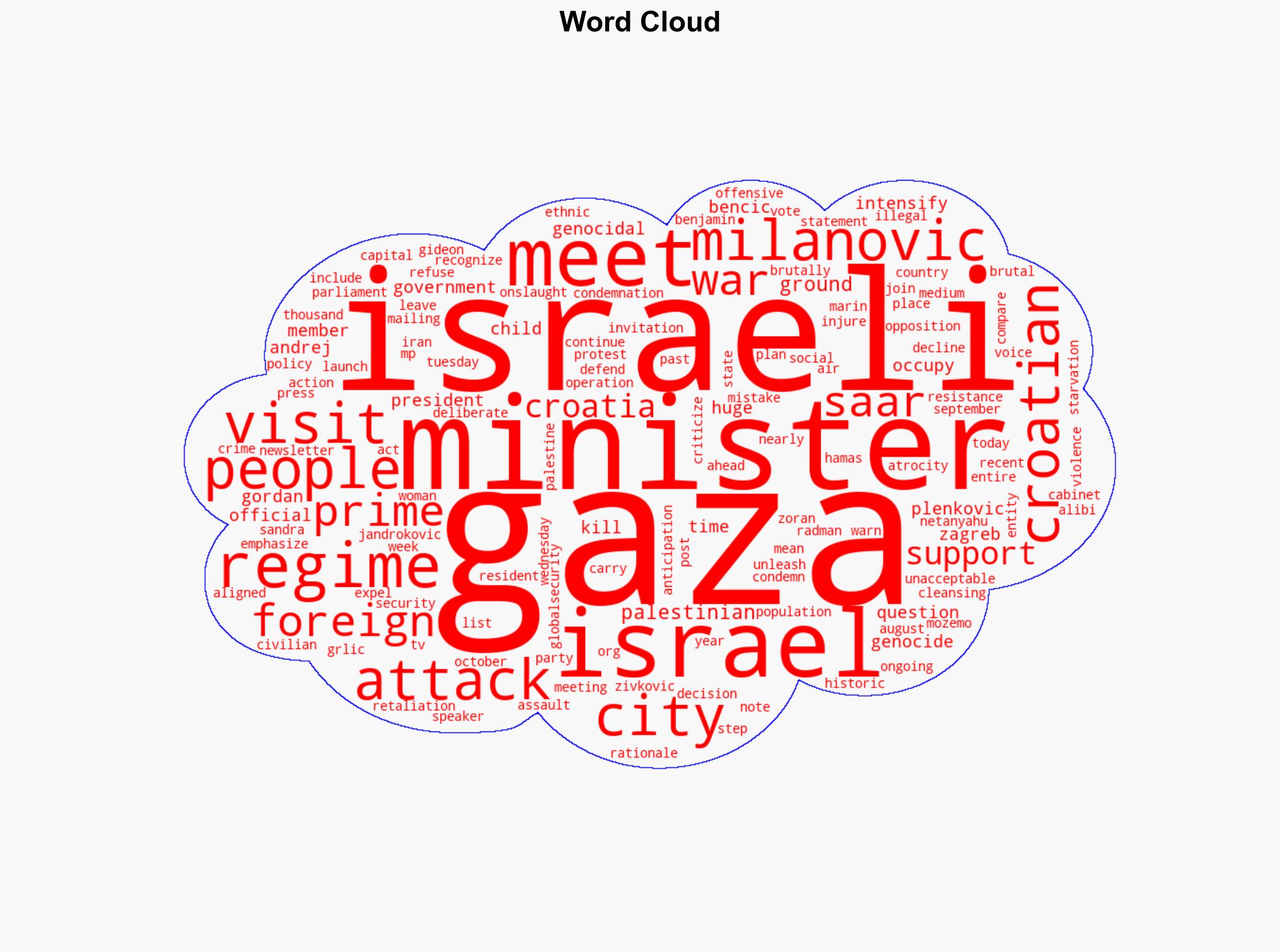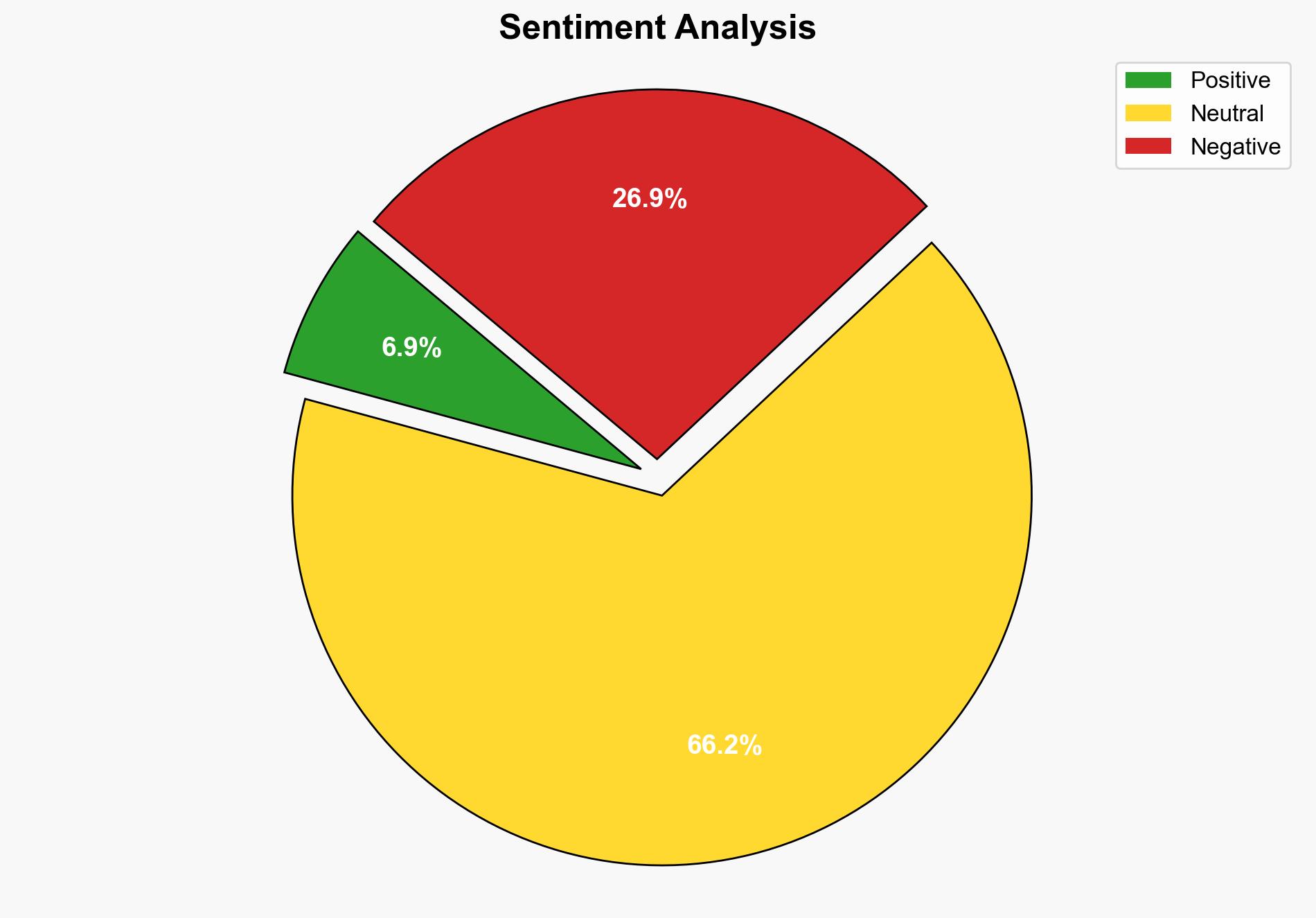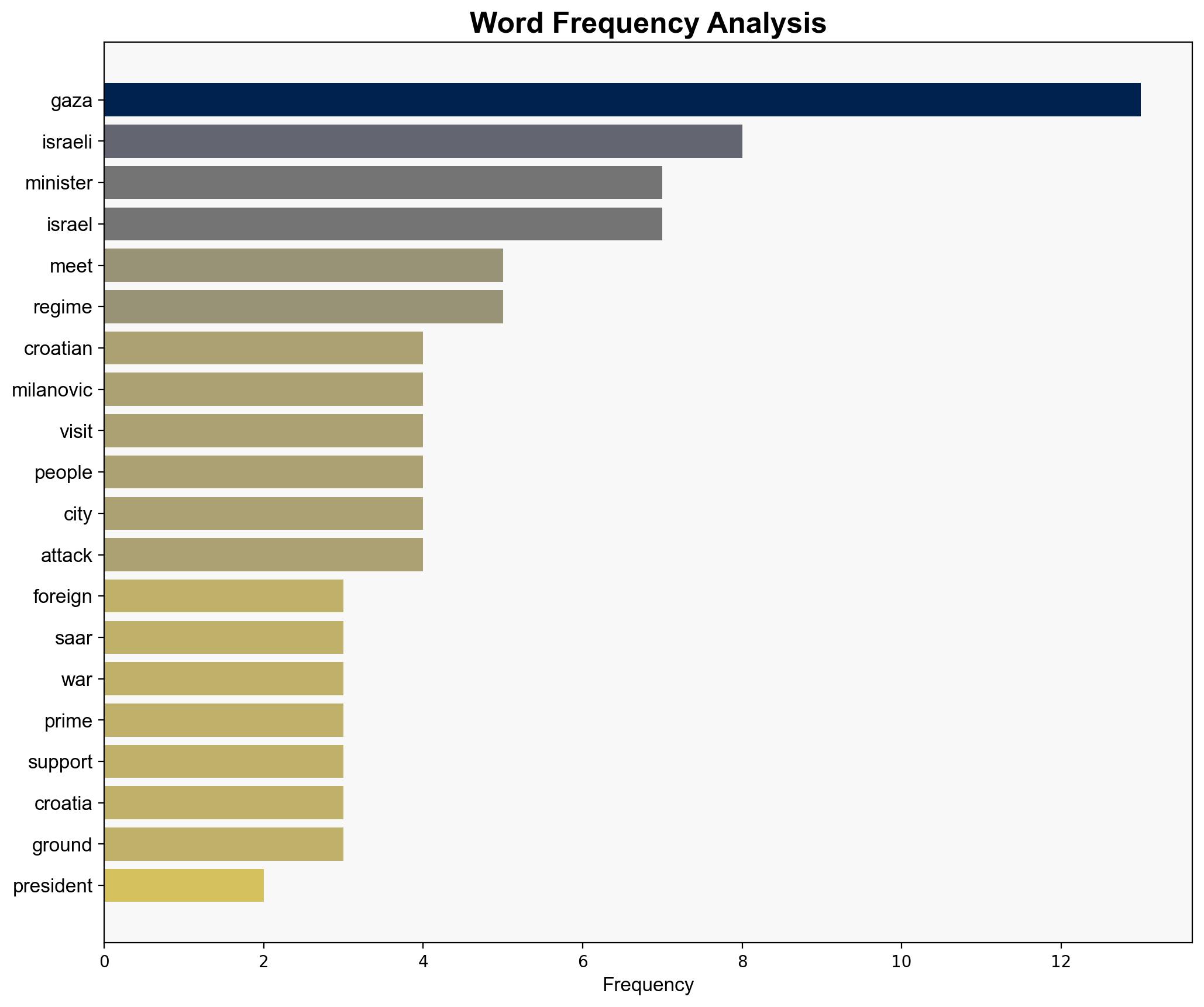Croatian president refuses to meet with Israeli foreign minister over Gaza genocide – Globalsecurity.org
Published on: 2025-09-11
Intelligence Report: Croatian president refuses to meet with Israeli foreign minister over Gaza genocide – Globalsecurity.org
1. BLUF (Bottom Line Up Front)
The Croatian president’s refusal to meet the Israeli foreign minister underscores a significant diplomatic rift, rooted in differing perspectives on the Gaza conflict. The most supported hypothesis suggests a strategic alignment with Palestinian sympathies and a critique of Israeli policies. Confidence level: Moderate. Recommended action: Monitor diplomatic communications and public statements for shifts in regional alliances and public sentiment.
2. Competing Hypotheses
1. **Hypothesis A**: The Croatian president’s actions are primarily driven by domestic political considerations, aiming to align with public sentiment and opposition parties critical of Israeli actions in Gaza.
2. **Hypothesis B**: The refusal is part of a broader strategic realignment, indicating Croatia’s shift towards stronger ties with Palestinian-supporting nations, potentially impacting its relationships within the EU and with Israel.
Using ACH 2.0, Hypothesis A is better supported due to explicit domestic criticism and public opposition to the Israeli visit, as well as historical context of Croatian political dynamics.
3. Key Assumptions and Red Flags
– Assumptions: Croatian public opinion is predominantly against Israeli actions in Gaza; the president’s actions reflect a broader political strategy rather than a singular diplomatic incident.
– Red Flags: Lack of explicit statements from other Croatian government officials could indicate internal disagreements or strategic ambiguity.
– Blind Spots: Potential external pressures or incentives from other EU nations or international bodies are not addressed in the source.
4. Implications and Strategic Risks
– **Geopolitical**: Potential strain on Croatia-Israel relations could influence EU’s collective stance on the Middle East conflict.
– **Economic**: Possible impacts on bilateral trade agreements or economic cooperation between Croatia and Israel.
– **Psychological**: Domestic political polarization may increase if the government appears divided on foreign policy.
– **Escalation Scenarios**: Heightened tensions could lead to broader EU debates on Middle East policy, affecting regional stability.
5. Recommendations and Outlook
- Monitor Croatian domestic political discourse for shifts in public opinion and policy direction.
- Engage with EU partners to assess collective responses to Middle East tensions.
- Scenario Projections:
- Best: Croatia mediates dialogue between EU and Middle East factions, enhancing its diplomatic stature.
- Worst: Diplomatic fallout with Israel leads to broader regional isolation.
- Most Likely: Continued diplomatic tension with limited immediate impact on broader EU-Israel relations.
6. Key Individuals and Entities
– Zoran Milanovic
– Gideon Saar
– Andrej Plenkovic
– Gordan Grlic Radman
– Gordan Jandrokovic
– Sandra Bencic
– Marin Zivkovic
7. Thematic Tags
national security threats, regional focus, diplomatic relations, Middle East conflict





